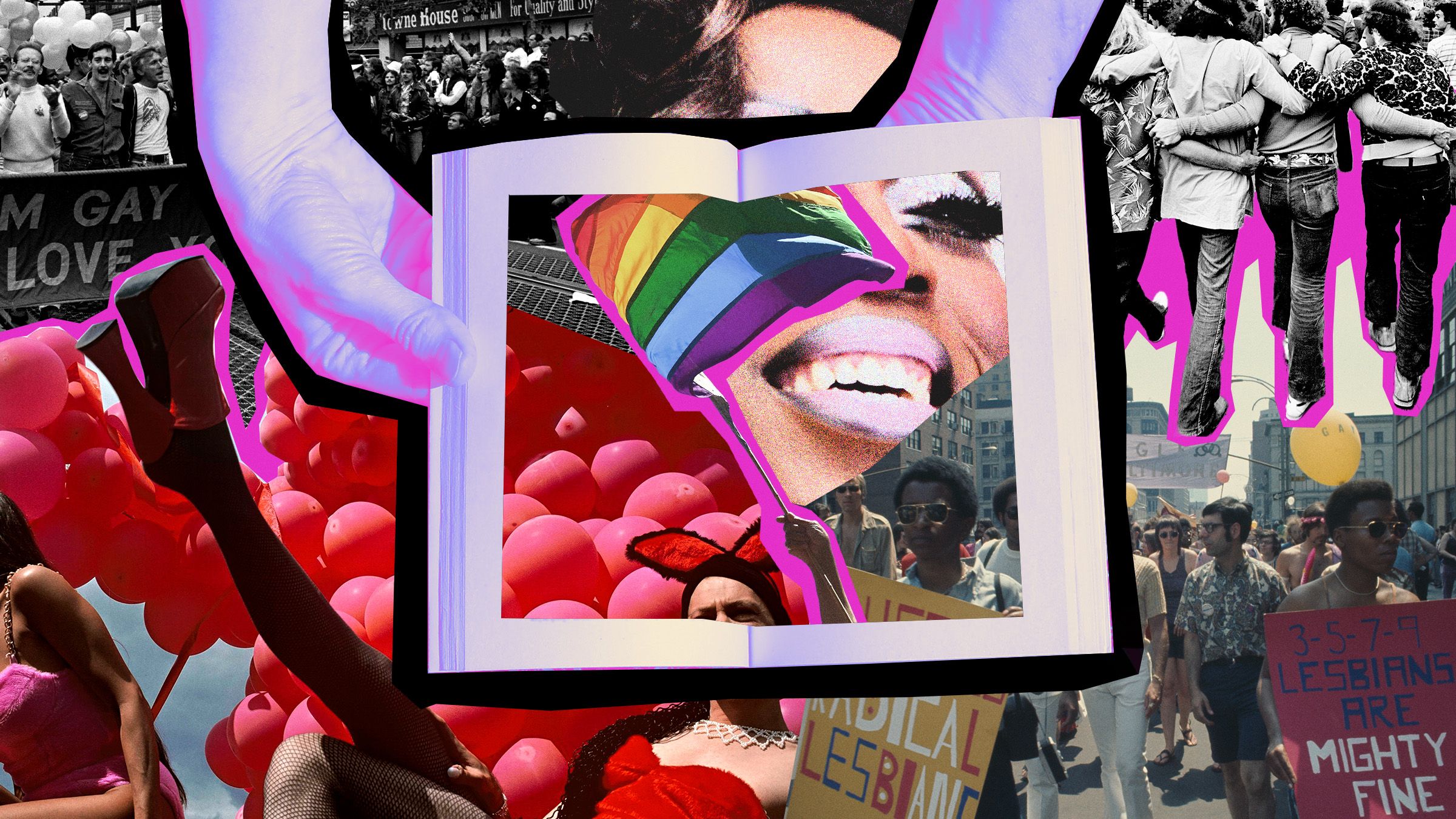Hugh Ryan has two things to say. The first will be alarming, but the second might offer some comfort: “The future is so much stupider than I expected, but the past is so much smarter.”
Ryan would know. As a queer historian and author, he’s used to talking about state of queer affairs, past and present, especially with actress, activist, and season 9 Ru Paul’s Drag Race contestant, Miss Peppermint. Together, the two are currently running Queer History 101, a monthly book club that’s taking a more expansive approach to history than simply reciting dates or names, at a time when their mission couldn’t be more important.
The queer community, especially transgender Americans, are under attack. The current administration is systematically wiping away trans people’s health information, gender autonomy, history, and employment opportunities, even in the case of national monuments like Stonewall, which is considered the birthplace of the modern movement for LGBT rights. “It’s shameful because we’re seeing the cover up in front of our eyes,” Peppermint says. Many companies are also backing off their initiatives that once celebrated queer pride as part of greater crackdown on DEI.
But all is not lost, as long as queer communities are still able to preserve their own history. The answers might just not be directly in front of us, but behind.
“They were smart,” Peppermint says of queer communities in the past. “Not because they had access to the tools or the science or the technology that we have access to. They’re smart because they figured out how to navigate systems of oppression that are still here.
“We need those folks to teach us—and the only way we can do it now is to read their stories.”
Queer History 101 is a fully virtual, monthly book club. The pair releases one video episode a month, as well as the occasional live chat; in April, the two hosted an interview with Harriet Tubman: Live in Concert author Bob the Drag Queen, also of Drag Race and Traitors fame. It’s a read at your own pace club, though it also includes a discord, called Kiki, where readers can talk to each other or propose questions for authors. June’s bookclub selection is Caro de Roberts’ So Many Stars: An Oral History of Trans, Nonbinary, Genderqueer, and Two-Spirit People of Color.
Queer History 101 is a revival of sorts, the reincarnation of a book club that began with an online indie store started by Eric Cervini and Adam Powell, built with the goal to pay and promote queer authors. In 2024, Cervini and Powell launched AllStora alongside Drag Race host and queer icon, RuPaul.
The book club has been revamped to fit the new hosts’ vision for queer history. “[Allstora] wanted to just really stick with scholarly non-fiction,” Ryan says. “We knew that was not going to work for us.” The pair wanted to reach readers who weren’t already interested, weren’t already huge history buffs, so they expanded their selections to include young adult novels, memoirs, poetry, and many other genres. “I don’t care if you come to queer history through a comic book or through TV or any of the books in our book club,” Ryan says.
“Queer history, it’s always a history of resistance, because that’s what queerness is,” he adds. Whether it’s sexual or gender identity, being queer is non-normative. “Institutions, even well-meaning ones, even schools that try really hard, even great public schools, they’re invested in a version of history that’s from the top down. And queer history is never that way.”
Ryan says that to “meet this moment,” it was important to not just discuss histories of what it means to be queer and Black, or trans in the 19th century—they had to get people connecting to one another. “We’re bringing a history of revolution, but we’re also trying to make community,” he says.
The way people connect and build community has changed, thanks to social media and smart phones.
Michael Bronski, a Harvard professor of the practice in media and activism, has been involved in LGBT politics and activism since 1969. He’s authored several books on queer history and politics. His students today, he says, are often astounded at the work that was done without social media. “All those new technologies are incredibly useful and efficient, but they often lack interpersonal relationships,” he says. Civil rights of all kinds began as community actions.
“It’s really important to prioritize the reality of community,” Bronski says. “We actually don’t form communities by tweeting. That may be useful for contacting people for something, but that’s not a community. Community means being together—physically, often, but virtually as well. “Now people get together on Zoom, which is good too,” he says.
Written histories do exist and are being added to every day. Our phones make it easier than ever to preserve the record; everyone’s able to take photos, video, and record audio. But websites can be changed, media can be removed. “What good is it gonna be if Amazon can just flick a switch everybody’s watching a commercial at the same time,” says Peppermint. “We are in this era of technology, but we clearly have to go back to an analog way of recording history as well.”
She points to Marion Stokes, an civil rights activist and archivist who recorded 24-hour television broadcasts for over 30 years, and in doing so created an indispensable record between 1979 and 2012. “We’re gonna need that, and we’re gonna need people to do things like that,” Peppermint says.
Despite the changes being made now, the Trump administration will not be in power forever. It’s possible that every step backwards for the queer community will be ground regained in the future. At the very least, says Bronski, Trump cannot truly erase trans or queer Americans.
“There’s an interesting contradiction that every act of erasure admits that something was there before,” he says. “The active erasure is actually an affirmation that it was existing to begin with.”
At 76, Bronksi has a long memory of events like Pride before corporations swooped in, when they were protest marches, not parades. He says it’s important for queer communities, however they’re formed, “to keep this knowledge alive within themselves”—whether that’s publishing their own books and magazines, telling oral histories, or preserving other aspects of their culture.
“What the administration is doing is horrible and destructive, for the moment,” he says. “We have to think of ways around that. The government has a lot of power, but it’s just the government—it’s not a community.”




